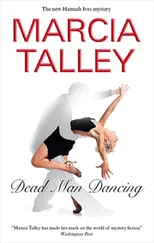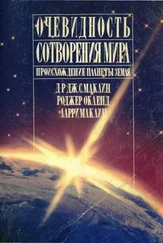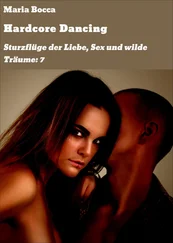Глен Хиршберг - Dancing Men
Здесь есть возможность читать онлайн «Глен Хиршберг - Dancing Men» весь текст электронной книги совершенно бесплатно (целиком полную версию без сокращений). В некоторых случаях можно слушать аудио, скачать через торрент в формате fb2 и присутствует краткое содержание. Жанр: short_story, на английском языке. Описание произведения, (предисловие) а так же отзывы посетителей доступны на портале библиотеки ЛибКат.
- Название:Dancing Men
- Автор:
- Жанр:
- Год:неизвестен
- ISBN:нет данных
- Рейтинг книги:4 / 5. Голосов: 1
-
Избранное:Добавить в избранное
- Отзывы:
-
Ваша оценка:
- 80
- 1
- 2
- 3
- 4
- 5
Dancing Men: краткое содержание, описание и аннотация
Предлагаем к чтению аннотацию, описание, краткое содержание или предисловие (зависит от того, что написал сам автор книги «Dancing Men»). Если вы не нашли необходимую информацию о книге — напишите в комментариях, мы постараемся отыскать её.
Dancing Men — читать онлайн бесплатно полную книгу (весь текст) целиком
Ниже представлен текст книги, разбитый по страницам. Система сохранения места последней прочитанной страницы, позволяет с удобством читать онлайн бесплатно книгу «Dancing Men», без необходимости каждый раз заново искать на чём Вы остановились. Поставьте закладку, и сможете в любой момент перейти на страницу, на которой закончили чтение.
Интервал:
Закладка:
The next morning, a Sunday, my father packed my green camp duffel bag with a box of new, unopened wax packs of baseball cards and the transistor radio my mother had given me for my birthday the year before, then loaded it and me into the grimy green Datsun he always meant to wash and didn’t. “Time to go,” he told me in his mechanical voice, and I was still too baffled by what was happening to protest as he led me outside. Moments before, a morning thunderstorm had rocked the whole house, but now the sun was up, searing the whole sky orange. Our street smelled like creosote and green chili and adobe mud and salamander skin.
“I don’t want to go,” I said to my father.
“I wouldn’t either, if I were you,” he told me, and started the car.
“You don’t even like him,” I said.
My father just looked at me, and for an astonishing second I thought he was going to hug me. But he looked away instead, dropped the car into gear, and drove us out of town.
All the way to my grandfather’s house, we followed the thunderstorm. It must have been traveling at exactly our speed, because we never got any closer, and it never got further away. It just retreated before us, a big black wall of nothing, like a shadow the whole world cast, and every now and then streaks of lightning flew up the clouds like signal flares but illuminated only the sand and mountains and rain.
“Why are we doing this?” I asked when my dad started slowing, studying the sand on his side of the car for the dirt track that lead to my grandfather’s.
“Want to drive?” he answered, gesturing to me to slide across the seat into his lap.
Again, I was surprised. My dad always seemed willing enough to play catch with me. But he rarely generated ideas for things we could do together on his own. And the thought of sitting in his lap with his arms around me was too alien to fathom. I waited too long, and the moment passed. My father didn’t ask again. Through the windshield, I watched the thunderstorm retreating, the wet road already drying in patches in the sun. The whole day felt distant, like someone else’s dream.
“You know he was in the war, right?” my father said, and despite our crawling speed he had to jam on the brakes to avoid passing the turnoff. No one, it seemed to me, could possibly have intended this to be a road. It wasn’t dug or flattened or marked, just a rumple in the earth.
“Yeah,” I said.
That he’d been in the war was pretty much the only thing I knew about my grandfather. Actually, he’d been in the camps. After the war, he’d been in other camps in Israel for almost five years while Red Cross workers searched for living relatives and found none and finally turned him loose to make his way as best he could.
As soon as we were off the highway, sand ghosts rose around the car, ticking against the trunk and hood as we passed. Thanks to the thunderstorm, they left a wet, red residue like bug smear on the hood and windshield.
“You know, now that I think about it,” my father said, his voice flat as ever but the words clearer, somehow, and I found myself leaning closer to him to make sure I heard him over the churning wheels. “He was even less of a grandfather to you than a father to me.” He rubbed a hand over the bald spot just beginning to spread over the top of his head like an egg yolk being squashed. I’d never seen him do that before. It made him look old.
My grandfather’s house rose out of the desert like a Druid mound. There was no shape to it. It had exactly one window, and that couldn’t be seen from the street. No mailbox. Never in my life, I realized abruptly, had I had to sleep in there.
“Dad, please don’t make me stay,” I said as he stopped the car fifteen feet or so from the front door.
He looked at me, and his mouth turned down a little, and his shoulders tensed. Then he sighed. “Three days,” he said, and got out.
“You stay,” I said, but I got out, too.
When I was standing beside him, looking past the house at the distant pueblo, he said, “Your grandfather didn’t ask for me, he asked for you. He won’t hurt you. And he doesn’t ask for much from us, or from anyone.”
“Neither do you,” I said.
After a while, and very slowly, as though remembering how, my father smiled. “And neither do you, Seth.”
Neither the smile nor the statement reassured me.
“Just remember this, son. Your grandfather has had a very hard life, and not just because of the camps. He worked two jobs for twenty-five years to provide for my mother and me. He never called in sick. He never took vacations. And he was ecstatic when you were born.”
That surprised me. “Really? How do you know?”
For the first time I could remember, my father blushed, and I thought maybe I’d caught him lying, and then I wasn’t sure. He kept looking at me. “Well, he came to town, for one thing. Twice.”
For a little longer, we stood together while the wind rolled over the rocks and sand. I couldn’t smell the rain anymore, but I thought I could taste it, a little. Tall, leaning cacti prowled the waste around us like stick figures who’d escaped from one of my doodles. I was always doodling, then, trying to get the shapes of things.
Finally, the thin, wooden door to the adobe clicked open, and out stepped Lucy, and my father straightened and put his hand on his bald spot again and put it back down.
She didn’t live there, as far as I knew. But I’d never been to my grandfather’s house when she wasn’t in it. I knew she worked for some foundation that provided care to Holocaust victims, though she was Navajo, not Jewish, and that she’d been coming out here all my life to make my grandfather’s meals, bathe him, keep him company. I rarely saw them speak to each other. When I was little and my grandmother was still alive and we were still welcome, Lucy used to take me to the pueblo after she’d finished with my grandfather and watch me climb around on the stones and peer into the empty caves and listen to the wind chase thousand-year-old echoes out of the walls.
There were grey streaks now in the black hair that poured down Lucy’s shoulders, and I could see semi-circular lines like tree rings in her dark, weathered cheeks. But I was uncomfortably aware, this time, of the way her breasts pushed her plain white denim shirt out of the top of her jeans while her eyes settled on mine, black and still.
“Thank you for coming,” she said, as if I’d had a choice. When I didn’t answer, she looked at my father. “Thank you for bringing him. We’re set up out back.”
I threw one last questioning glance at my father as Lucy started away, but he just looked bewildered or bored or whatever he generally was. And that made me angry. “Bye,” I told him, and moved toward the house.
“Goodbye,” I heard him say, and something in his tone unsettled me; it was too sad. I shivered, turned around, and my father said, “He want to see me?”
He looked thin, I thought, just another spindly cactus, holding my duffel bag out from his side. If he’d been speaking to me, I might have run to him. I wanted to. But he was watching Lucy, who had stopped at the edge of the square of patio cement outside the front door.
“I don’t think so,” she said, and came over to me and took my hand.
Without another word, my father tossed my duffel bag onto the miniature patio and climbed back in his car. For a moment, his gaze caught mine through the windshield, and I said, “Wait,” but my father didn’t hear me. I said it louder, and Lucy put her hand on my shoulder.
“This has to be done, Seth,” she said.
“What does?”
“This way.” She gestured toward the other side of the house, and I followed her there and stopped when I saw the hogan.
Читать дальшеИнтервал:
Закладка:
Похожие книги на «Dancing Men»
Представляем Вашему вниманию похожие книги на «Dancing Men» списком для выбора. Мы отобрали схожую по названию и смыслу литературу в надежде предоставить читателям больше вариантов отыскать новые, интересные, ещё непрочитанные произведения.
Обсуждение, отзывы о книге «Dancing Men» и просто собственные мнения читателей. Оставьте ваши комментарии, напишите, что Вы думаете о произведении, его смысле или главных героях. Укажите что конкретно понравилось, а что нет, и почему Вы так считаете.







